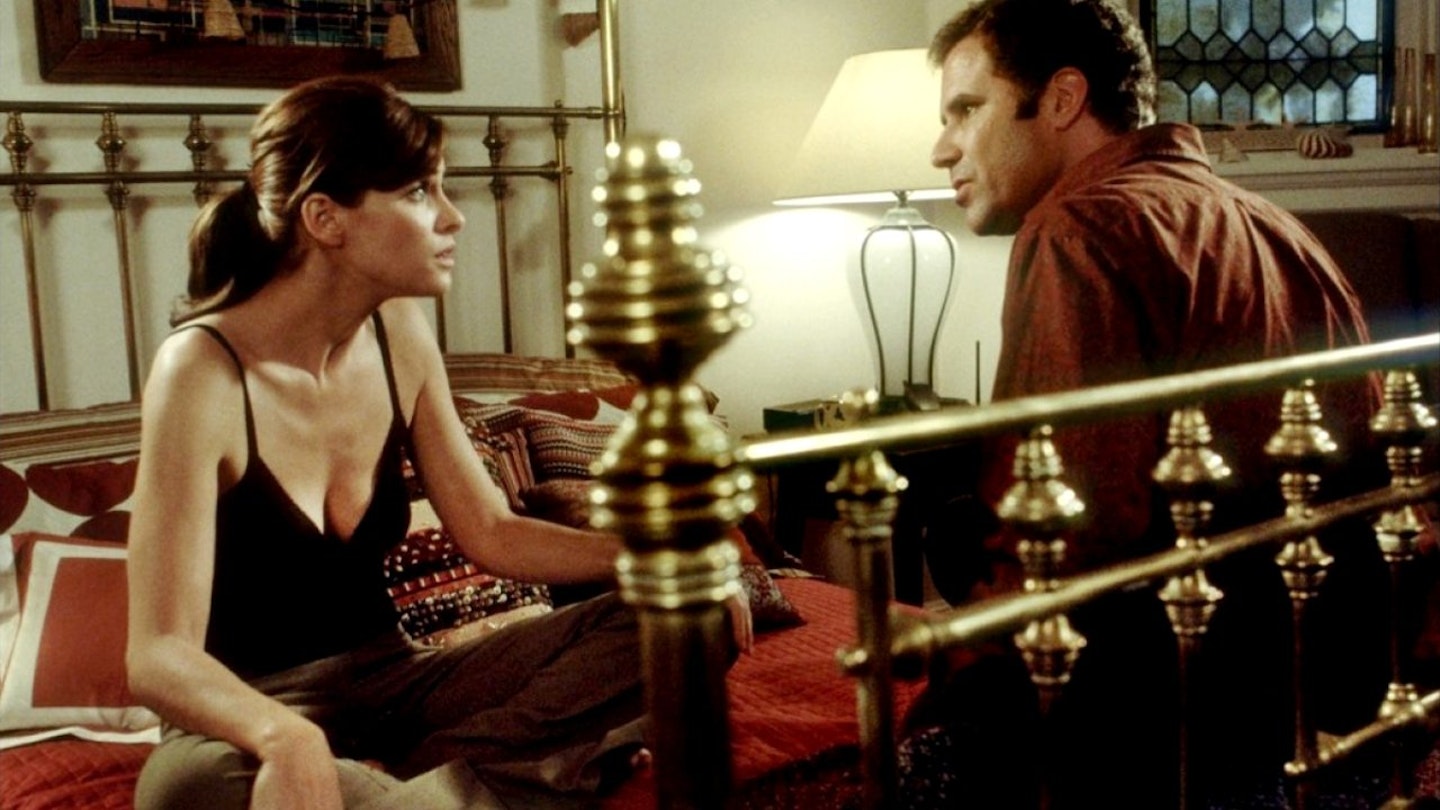The film begins with the most explicit amplification of the dynamic that has consumed Allens creativity - the pull between tragedy and comedy. Melinda And Melinda tackles these seemingly polar opposites head on, combining the straight-up laughs of 'The Early, Funny Stuff' with the gravitas of 'The Later, Serious Works', creating Allen's funniest, most affecting movie for some time.
Part of the thrill here is that, in many ways, Melinda And Melinda is a melting pot of Allen's best work, touching base in particular with Manhattan, Broadway Danny Rose and Hannah And Her Sisters. But if M&M negotiates typical Woody territory - the vagaries of romance, breakdowns in communication ('Of course we communicate, but can we not talk about it?'), identity and intimacy - it does it with a sharpness that's been absent in the Deconstructing Harry/Anything Else era.
The ace in the hole is the dual storytelling device. In the tragedy strand, a highly strung Melinda bundles into the life of an old friend (Chloe Sevigny) and her alcoholic actor husband (Jonny Lee Miller, the film's weak link) and gets involved with composer Ellis Moonsong (Chiwetel Ejiofor), who in turn forms a bond with Sevigny. In the comedy take, a free-spirited Melinda bundles into the life of neighbour/filmmaker Susan (Amanda Peet) and her husband Hobie (Will Ferrell), the latter becoming besotted with Melinda. The comedy syringes Allen's Chekovian tendencies while the 'tragedy' grounds the broader elements, lending the movie a unique, compassionate tang. This may all sound overly gimmicky, but it isn't. As both director and screenwriter, Allen doesn't allow the stories to interact and mirror each other in slavishly programmatic ways. Instead, the events and motifs of one story (including a genie-like lamp) are judiciously placed and spread out to trigger knowing recognition in the other. Also, working for the first time with cinematographer Vilmos Zsigmond, Allen wisely avoids giving each story a distinct look, further underlining the duality of tragedy and comedy.
From Sevigny and Peet down to the smaller roles (such as Vinessa Shaw as a man-eating Republican), Allen confirms his place among America's best directors of women. In particular, he draws out a terrific turn from Radha Mitchell. The contrast from the neurotic Melinda to the open, carefree Melinda couldn't be more beautifully judged; it's the kind of performance that would get awards recognition at any other time of the year.
Joining the list of wannabe Woodys such as John Cusack (Bullets Over Broadway), Kenneth Branagh (Celebrity) and Jason Biggs (Anything Else), Will Ferrell swaps Anchorman nuttiness for affability as Allen's stock-in-trade nebbish hero, this time an actor who plays every character with a limp. In the tragedy take, meanwhile, Ejiofor's big-hearted composer lends a warm centre as the tale unfurls. 'Life is messy,' he observes, as the emotional strands becomes more and more knotted. But Melinda And Melinda makes it perfectly clear why it's always worth unravelling life's tangles.
